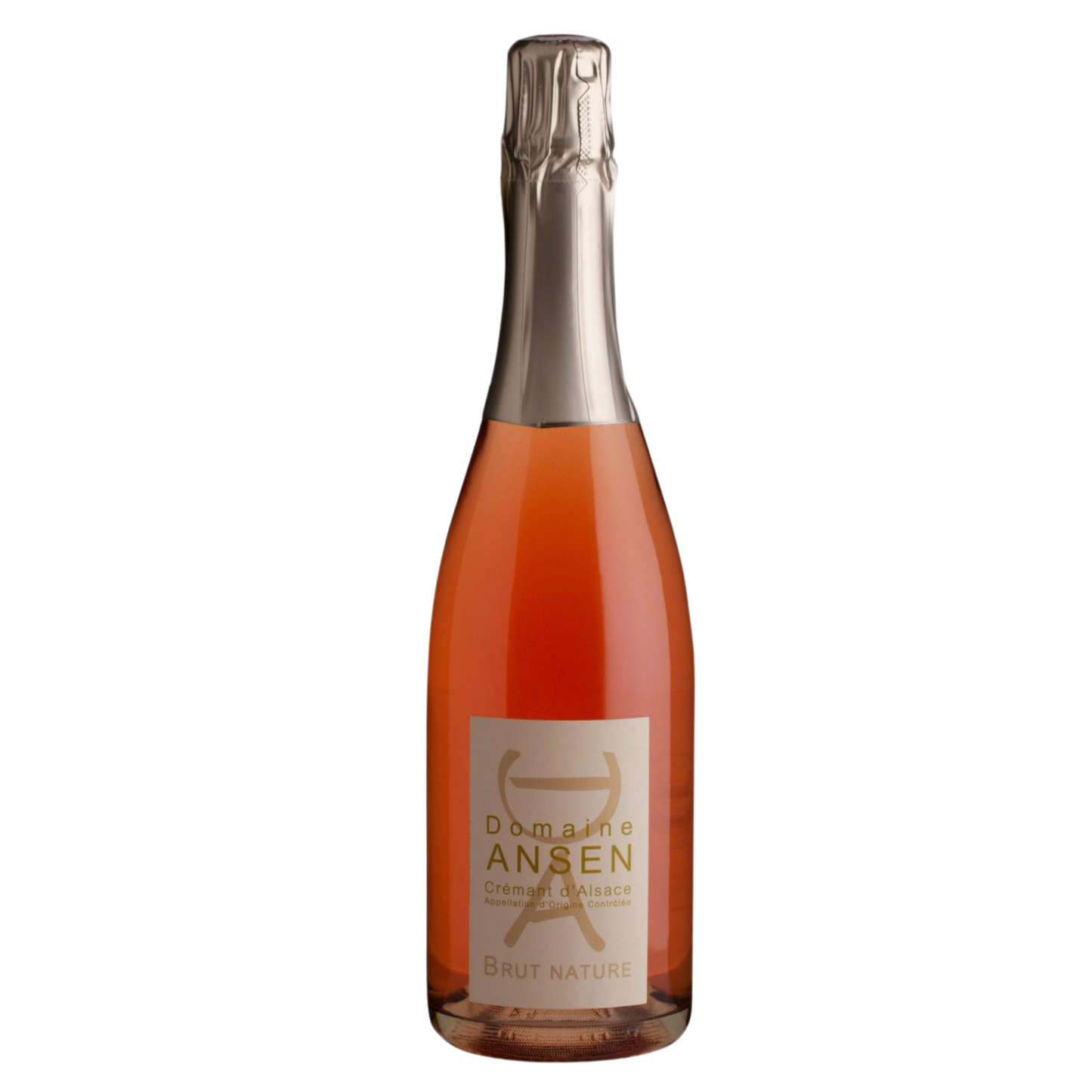Domaine Ansen Cremant d'Alsace Rosé 2021 (750 ml)
Domaine Ansen Cremant d'Alsace Rosé 2021 (750 ml)
Couldn't load pickup availability
100% Pinot Noir
Fermentation Stainless steel, Selected yeasts
Aging 20 months
Filter / Fining No fining
ABV 11%
Farming Methods Organic Certified
The Domaine Ansen Cremant d’Alsace Rosé Brut Nature is a pure expression of Pinot Noir from a small plot of vines that were planted in 2013. Since Pinot Noir is the only allowed red grape in Cremant, and it is illegal to blend white and red grapes, this is a 100% expression of the grape. The fruit was pressed from whole bunches into stainless steel tanks for a long and slow cold fermentation. The wine was bottled and then after 20 months of rest, this sparkling is disgorged on demand with no dosage and only topped up with the same juice from other bottles. Between the non-fertile clay soils, the extreme temperature shifts of the region, and the soft touch with the grapes, the result is quite delicate in the glass with a gorgeous concentration of aromas. Strawberry and balsamic tones lead with vivacity on the nose and continue on to the palate. Loaded with zippy lime zest, small berries, and pure and fresh minerality, bone-dry austerity, and a long delicious finish.
In the northern most hills of the Alsace AOC of eastern France, Domaine Ansen has been a family of grape growers, fruit orchard farmers, cattle raisers, and all things in between for over 400 years. In the mid-nineties, Daniel Ansen set out to learn the trade of winemaking, spending time not only in Alsace, but also Australia, the United States, and Bordeaux, where he went to enology school. In 2010 he moved back into the old family house with his wife Karine and took over the fields from his father, looking forward to converting everything to organic viticulture, and starting to make wine from their grapes that had always gone to a local cooperative. Slowly expanding in Alsace’s diverse land, Daniel farms 8.5 hectares, in 40 plots (some are as small as 2 rows of vines), to 8 grape varieties, on 3 different soil types (black clay, limestone, and sandstone). Careful hand harvesting, the use of stainless steel for natural fermentations and aging, and very little (to zero) sulfite use in the finished wines, he lets each grape express their natural characteristics to the fullest, be it laser acidity, sweet ripe fruit, or a combination of both.


